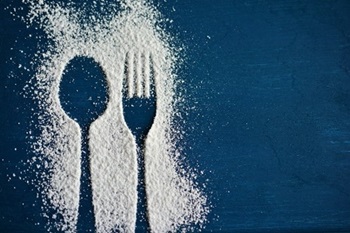The Dilemma Comfort Feeding Presents
Lawren Love, MD Mar 28, 2023
The issue of comfort feeding, particularly in dementia, arises frequently in my hospice work. I find myself discussing this topic with caregivers, families and my colleagues. I’m not sure that a concrete definition for “comfort feeding” exists and I see a wide range of how families and caregivers operationalize this concept. The idea of “comfort feeding” or “careful hand feeding” arises usually in dementia when a decision is made to continue feeding the patient for pleasure despite known risk of aspiration. Some families dedicate hours of their day nourishing the patient drop by drop with a syringe, pausing when the patient falls asleep or coughs. I educate families to allow their loved ones to rest and only try feeding them when they are awake and seem receptive to oral intake. I try to encourage families to avoid feeding patients for whom oral intake appears to cause harm such as choking or coughing.
Honestly, I often feel myself on unsteady ground when providing guidance to caregivers about comfort feeding. When they ask for my guidance, I usually respond by first acknowledging that nourishing our family is a basic human instinct so it’s normal for this issue to be difficult. I go on to explain that there is no one correct way, that families do comfort feeding in different ways according to their values and beliefs. The idea is to shift the purpose of feeding from sustaining life to providing pleasure. I validate that what makes it so hard is that we can’t know the internal state of a patient with severe dementia. Does opening the mouth indicate a desire for food or is it simply a reflex? Are they experiencing thirst? After this discussion, families are often still left confused.
Occasionally, caregivers want to discuss withdrawal of oral feeding. I am currently taking care of a man, Mr. GC, with severe dementia who is living in a care home. His wife is distressed because she is certain his current quality of life would be totally unacceptable to him. He is bedbound, nonverbal, incontinent, and completely dependent for all ADLs but may live for years in this state because, when presented with a spoon, he opens his mouth and swallows without difficulty. I discussed the concept of comfort feeding with the care home operator and was asked to write an order for it. I ended up writing something like “Comfort feeding only. Do not awaken patient for meals. Stop feeding if patient falls asleep or has evidence of aspiration.” Within the boundaries of comfort feeding the patient continues to receive adequate nutrition and persist in a state that we all agree the patient would not desire.
I know that the idea of dementia-specific advanced care planning is becoming more popular and could include instructions about what kind of feeding a person would want potentially at different stages of dementia, including potentially specifying a desire not to be hand fed. The ethics and legality of withdrawal of oral intake remains unclear, but it has become increasing clear to me that while deciding to avoid tube feeding is important, it is certainly not sufficient to protect against a prolonged existence with severe dementia if that is the goal. I had no idea prior to my work in hospice how long a patient can live with end stage dementia, severe dysphagia, and cachexia. I don’t feel that I can give families permission to stop feeding their loved ones. We have not decided as a society if hand feeding is a medical intervention that can be withdrawn. I can encourage aggressive symptom management and true comfort feeding. That said, I know in my heart what I would do for my own severely demented parent…perhaps an intermittent taste of ice-cream or chocolate, but I would not allow them to linger in that condition. This tension between what I would do for my loved ones or indeed want for myself and what I can recommend for my patients is uncomfortable.